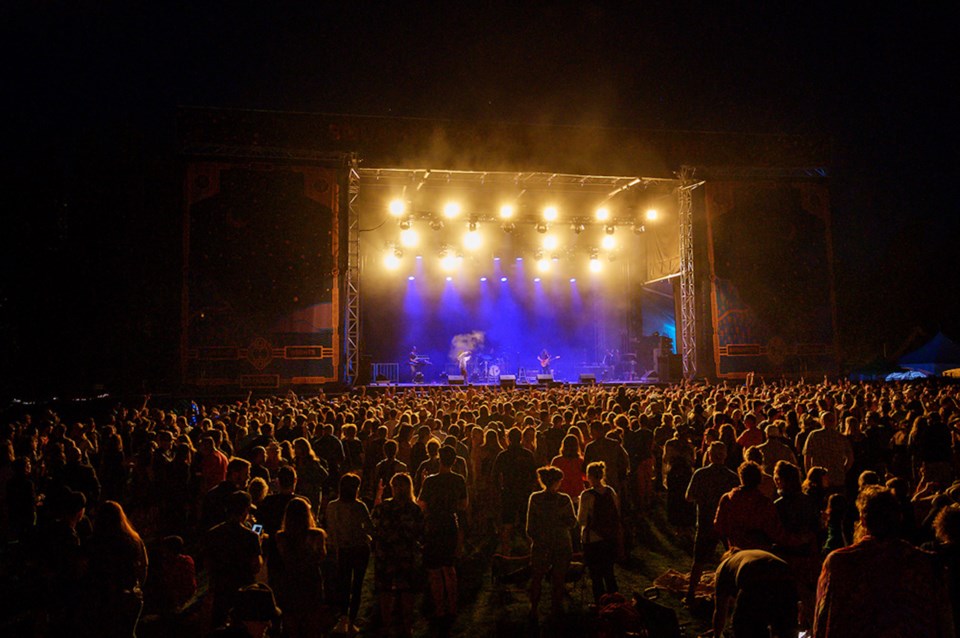Hopefully, the third time will be a charm.
After COVID-19 restrictions led to the cancellations of both the 2020 and 2021 Squamish Constellation Festivals, organizers are ready to give it yet another go.
On Jan. 18, festival backers Patricia Heintzman, Tamara Stanners and Kirsten Andrews presented a progress report to council on their plans for the 2022 summer event.
“As we all know, COVID took us by surprise, and we had to put the brakes on the festival at that time,” said Stanners.
“And we thought that we could move that festival and all the planning that we had done for 2020, and just, honestly, pick it up, move it a year, and put it into 2021, and, as we all know, that wasn’t a possibility. So all the planning we did for 2020 and 2021 was wiped out, and we had to start from the drawing board.”
She noted many producers and vendors had to leave the business, which was devastating.
The festival’s ambitions this time around is to make a comeback — with Sarah McLachlan headlining — and to grow the daily attendance beyond 6,000 people per day.
“And that really is not our ultimate goal, because it’s not necessarily where we become sustainable, but I think it is a realistic goal, given we’re sort of back at ground zero because of the setbacks that COVID [has] handed us,” Heintzman said.
For the festival to become financially sustainable, organizers said, it would have to grow beyond 7,500 people per day.
There’s also the goal of increasing the talent budget to attract bigger name artists, and to increase the number of bands to 40, up from 33, they said.
“That’s ultimately how we grow the brand, grow the buzz about the festival and present those opportunities for emerging artists,” Heintzman said, noting organizers want the festival to also be an incubator for lesser-known talent.
Andrews said that the festival has received a sizeable grant from the province, as well as from FACTOR Canada, a federal non-profit that promotes Canadian musicians.
“The live music industry has been the hardest hit of all industries in the country,” Andrews said.
The money will go to artists, crews and others who work in the industry, Andrews said.
This year, the festival will be seeking to add camping for up to 700 tents and 150 vans. Organizers said a portion of it is intended to be for quiet family camping, but a larger area will be available for general camping.
There will also be shuttles for the neighbourhood surrounding the festival, Vancouver and Whistler.
Heintzman said plans are underway to have early bird ticket sales available in February. They hope to have the full lineup of musicians announced by late March or early April.
The multi-day Constellation Festival debuted in the summer of 2019 with acts from across the country playing to a crowd of thousands at Hendrickson Field.
Some of the biggest names at that event were Jessie Reyez, The Halluci Nation [Known then as A Tribe Called Red], Bahamas and Serena Ryder, who were among the 33 bands who played at the event. Art installations, food vendors, as well as what organizers dubbed “B.C.’s first weed garden” were other highlights.
The general demographics of the 2019 event were university-educated 28 to 49-year-olds with an average household income between $60,000 and $125,000.
Organizers also touted themselves as the province’s largest zero-waste festival, saying that they were able to divert 94% of waste away from the landfill.
This was done by creating a zero-waste and plastics policy that prioritized compostable and reusable cups, cutlery and plates. No single-use straws, bags, cups or bottles were on site, they said.
***Updated Jan. 21, 8:54 a.m. to clarify that general camping will make up a larger portion of the camping planned for the event.



